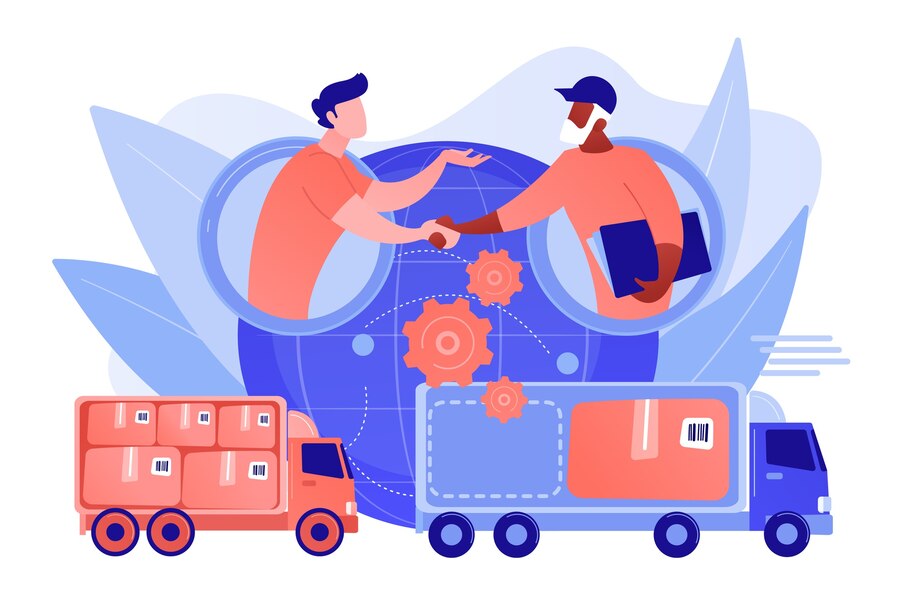Before products are consumed, they travel through the supply chain. Businesses either opt-in as a direct-to-consumer (D2C) or collaborate with channel partners. This blog gives an overview of what kind of businesses need a loyalty program for their channel partners and how a digital version of the same can turn the tables for businesses.
Distribution Channel Decides The Need For a Loyalty Program -
Whether it’s a small-scale custom t-shirt manufacturer or a giant automobile parts manufacturer, all kinds of businesses need to choose a distribution model that suits their needs, and way of doing business. The 2 most common channels of distribution are –
- Direct Selling – When a company distributes products directly to customers without any channel partners, they are tagged as a direct-to-consumer business. Brands following this type of distribution channel don’t need a loyalty program. Instead, they require brick-and-mortar storefronts, online presence, telemarketing, etc.
- Selling Through Intermediaries – When brands utilize wholesalers, distributors, and retailers to spread their products in a market, they sell through intermediaries. This type of distribution channel needs a loyalty program where the company incentivizes its channel partners for every unit they sell in the market.
3 Situations When You Need a Loyalty Program -
Channel partners distribute, influence, or sell your products in the market where your customers are. While they help in moving and placing your products, companies need to incentivize them to promote the right products and brands.
Consider the below situations when you might feel the need for a loyalty program and channel partners –
- When You Don’t Want to Sell Directly – Some companies rely heavily on their channel partners to sell the product. The direct channels contribute a lesser percentage of their revenue.
- When You Have A Large Market To Cater – The market for consumer goods, electrical appliances, and auto parts is huge. Be it rural or urban areas, demand for such products is constant and ever-increasing. When companies have a huge market to cater to, they rely on channel partners spread across the target geography to help them move goods from the company’s warehouses to end consumers.
- When There Is Fierce Competition – Every brand faces competition, especially for products that are similar in nature or function. To bypass this fierce competition, companies rely on channel partners to sell and promote their products. The channel partners communicate product USP and benefits to the customers or give extra discounts to increase sales.
In either of these situations, establishing a distribution channel and incentivizing the channel partners through a loyalty program, becomes a must. Not only do they play a primitive role in the supply chain, but they also act as representatives of your brand.
What Type Of Businesses Benefit from a Loyalty Program?
Any brand whose major source of revenue comes from channel partners should consider having a proper loyalty program in place. Especially if the brand is launching a new product, expanding to a new geography or fiercely competing with other brands,well-designed loyalty programs not only increase sales but also build brand ambassadors like retailers, influencers, and customers.
Consumer Goods – Consumer goods is the fourth largest sector of the Indian economy where household and personal care products account for 50% of the total revenue. From rural to urban – every family needs consumer goods for their well-being and hygiene and demand for such products occurs daily.
Channel partners, in this industry, help consumer goods companies capture maximum market and geography. Additionally, brands having good relationships with retailers and sub-retailers helps in better placement of products.
Electrical Appliances & Gadgets – The consumer electronics industry is the most dynamic of all. Products that did not exist until a decade ago are most in demand today. The continuous need for innovation, launching new products, and keeping up with the pace makes it almost mandatory for consumer electronics brands to have a loyal channel partner base. Consumers either rely on online reviews or retailers’ or electricians’ advice to make the final purchase.
Consumer electronics brands whose primary source of revenue is through retailers, electricians, or other channel partners, must focus on building lucrative channel loyalty programs for higher reach, sales, and brand awareness.
Building Materials – Building materials products like paints, cement, putty, glass, Plywood, etc. are mostly promoted by influencers or retailers to the end consumers. Since these products are used occasionally, consumers rely on experts like painters, plumbers, and electricians to guide them on the right products based on the consumer’s budget and expectations. So, the brands operating in this industry dominate mainly because of two factors – quality products and loyal channel partners. Thus, building material brands needs a well-designed loyalty program for influencers and retailers that encourages them to push the brand’s products.
Auto-Ancillary Parts – Suppose your car broke down (let’s hope not). You reach the mechanic and ask to get it repaired. How many times have you asked your mechanic regarding what auto parts he or she is installing in your vehicle? As a consumer, you need the end product and because you trust your mechanic, you assume that they must have fixed good quality parts.
Mechanics and technicians have the power to make or break your brand because they are the ones who decide which brands are better than the rest. Producing supreme-grade auto products is as important as earning the goodwill of mechanics, workshops, and retailers. If you are into producing auto-ancillary products then you need to have a loyalty program for channel partners.
Agri-input Products – Two of the major drivers for sale of Agri-input products is farmer’s education and lucrative offers. Besides branding and advertising, both of these are driven by channel partners like retailers and influencer farmers. So, agri-input brands need to have well-designed loyalty programs for their channel partners to capture more market share, and promote their products directly to the farmers.
Loyalty Programs Are A Gateway To Convert Channel Partners Into Brand Ambassadors
Well-designed loyalty programs not only motivate the channel partners to sell your product but also make them your brand ambassadors. Good quality product coupled with lucrative incentive programs helps the channel partners build credibility in the market. The happy customers keep consulting these channel partners to take more suggestions about different products which in turn profits them – influences and retailers even more.
This keeps the channel partners intrinsically motivated to keep pitching your product to the target audience.



